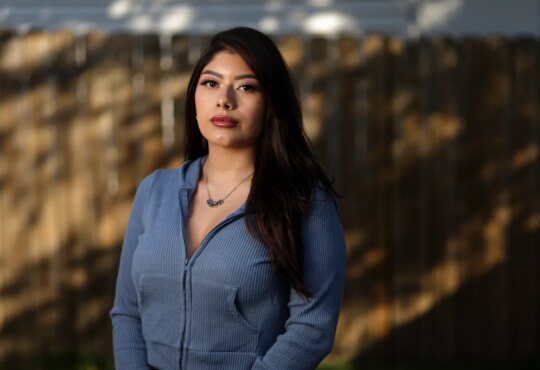
How much is a real estate agent commission—and who actually pays it? These are common questions among homebuyers and sellers navigating a real estate transaction, and the answers have changed recently.
In most cases, real estate agents are paid through commission fees based on the home’s final sale price. But following new guidelines from the National Association of Realtors® (NAR)—which took effect on August 17, 2024—there are now new rules for how these commissions are disclosed, negotiated, and paid. The goal: more transparency and flexibility for both buyers and sellers.
Whether you’re planning to list your home or buy one, here’s what to know about real estate agent fees, how much they typically cost, who pays them, and how the process works under the new rules.
Who pays the real estate agent commissions?
Traditionally, home sellers paid the commission for both their own listing agent and the buyer’s agent. However, under the 2024 NAR settlement, that has changed: buyers are now responsible for compensating their own agent—unless otherwise negotiated.
That said, sellers can still choose to offer compensation to the buyer’s agent. Here’s how it works now:
-
Your agent must conspicuously disclose to you and obtain your approval for any payment or offer of payment that a listing broker will make to another broker acting for buyers.
-
This disclosure must be made to you in writing in advance of any payment or agreement to pay another broker acting for buyers, and must specify the amount or rate of such payment.
-
If you choose to approve an offer of compensation, there are changes to how this can happen.
-
You as the seller can still make an offer of compensation, but your agent cannot include it on a multiple listing service (MLS). An MLS is a local marketplace used by both buyer brokers and listing brokers to share information about properties for sale.
-
You as the seller can still offer buyer concessions on an MLS (for example, concessions for buyer closing costs).
If you choose to compensate a buyer’s agent
When the sellers set a listing price for the home, they usually take the real estate agent’s commission into account—and consider it the cost of doing business. (Here’s how to find a real estate agent in your area.)
Do you have to pay a real estate agent commission?
No—you’re not required to use a real estate agent when buying or selling a home. But going it alone means taking on all the responsibilities yourself.
Real estate agents bring experience in:
-
Pricing and market strategy
-
Listing and promotion (via the MLS and marketing channels)
-
Negotiating offers and terms
-
Managing paperwork and ensuring a smooth closing
Also keep in mind: agents are typically only paid when the sale closes, so their incentives are aligned with your success.
Can you negotiate real estate agent commission fees?
Yes. Real estate commission rates are negotiable. There are no federal or state laws that mandate a fixed rate.
While the standard commission is often between 5% and 6% of the sale price (split between buyer’s and seller’s agents), the actual rate depends on:
You can also consider alternative models, like:
-
Transactional agreements: Limited service from a licensed agent for a flat fee or reduced commission
-
Discount brokerages: Online platforms or firms offering reduced rates in exchange for scaled-back service
What is dual agency in real estate?
It’s not a common situation in real estate, but if the agent you’ve hired to represent you also represents the seller of the house you’re buying, it’s called dual agency. Also known as transaction brokers, dual agents represent the interests of both the buyer and the seller.
Some states have made dual agency illegal in a real estate transaction to outright eliminate any question that the agent was neutral in representing the seller and the buyer. But in the states that allow dual agency, agents are required by law to disclose that they’ll be representing both sides to their clients.
Critics who advise against dual agency worry about potential conflicts of interest—the chance that the interests of both the buyer and seller will not be met.
What do closing costs cover?
Closing costs are the additional fees paid at the end of a real estate transaction—separate from the agent commission.
-
Loan processing and origination fees
-
Appraisal and survey fees
-
Homeowners insurance and property taxes (prorated)
The amount of the real estate closing costs will vary with each home sale/purchase and can range widely from 2% to 7% of the home’s purchase price. Typically, though, closing costs amount to about 3.5% of the sale price of a home, according to Leah Layman, a real estate agent in Augusta, GA.
Your agent will provide you with a buyer’s sheet outlining the closing costs. By federal law, you must receive a “good-faith” estimate of your closing costs from any lender you use in your real estate purchase.
Your negotiating skills (or your agent’s) come into play when it comes to who pays the closing costs. There is no cut-and-dried rule about who pays the closing costs—the seller or the buyer—but buyers usually cover the brunt of the costs (3% to 4% of the home’s price) compared with sellers (1% to 3%).
“Most closing costs are negotiable,” Reliantra says. “Do not let the agents or vendors convince you otherwise.”
Attorney fees, commission rates, recording costs, and messenger fees can all be negotiated down.
Sometimes, the buyer will have written into the contract that the seller will pay the buyer’s closing costs up to a certain percentage or amount.
“That’s why you need a good real estate agent to negotiate a contract for you,” Layman says.
If the closing costs are too steep and the sellers won’t chip in as much as buyers would like, the buyers can request that real estate closing costs be rolled into the mortgage.
How to know what you’ll pay in commissions and fees
All of the details about a real estate agent’s commission should be outlined in the contract that you sign when you hire an agent. This is typically referred to as a listing agreement, and it also specifies how long the agent will represent you. (Generally, listing agreements last 90 to 120 days.)
Also, keep in mind that there are some exceptions. For instance, rental agents work differently from purchase agents. It’s usually the landlord’s job to pay the rental agent’s fee, but that’s not set in stone.
Furthermore, the commission is usually higher when selling a vacant lot, since selling land often takes longer and requires more marketing dollars. Meanwhile, some auctions charge homebuyers a 5% “premium,” or commission.
As a seller, you want a real estate agent who can broker the best sales price and terms for you.
Remember, buying and selling a home might be the biggest financial transactions of your life, which is why you’ll want an expert on your side, even if that comes at an expense. Whether you’re the buyer or the seller, the listing price isn’t the only number you should focus on. Those fees outside the price of the house can add up, and you don’t want to be hit with any surprises late in the game.
To learn more, check out our Guide to Real Estate Commissions, which covers everything homebuyers and sellers need to know.
Additional reporting for this article was provided by Allaire Conte.





